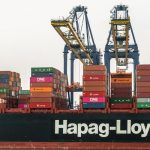A global audience has heard how innovation, the maritime workforce and the role of industry and governments can work to realize shipping’s sustainable future.
IMO’s World Maritime Day webinar (24 September) brought together speakers from government, international organizations and innovative enterprise. They raised issues and highlighted solutions facing shipping, particularly in the context of the Covid-19 pandemic. One overarching theme was that the pandemic could and should be the catalyst for positive change, with international and cross-sector cooperation being the key.
In his opening remarks, IMO Secretary-General Kitack Lim set the tone by praising the unprecedented level of cooperation between all those involved in the maritime sector in response to the pandemic. He said, “Never has the spirit of cooperation been more important than now. I can assure you that IMO, as the global regulator of international shipping, is ready to establish new partnerships for cooperation and sustainable economic recovery, and to help drive the SDGs, for the benefit of all humankind.”
H.E. Mr. Robert Courts, Minister for Aviation, Maritime and Security, Department for Transport, United Kingdom, emphasized the need to protect our marine environment, saying that “today’s summit is testimony to our international efforts. It is right that as we build our way out of the Covid-19 pandemic, we double down on protecting our environment to deliver a greener future”.
IMarEST’s Mr. Alastair Fischbacher said that the pandemic had not changed our shared sustainable shipping target, but raised the issue that “in a competitive world, it is easier to follow than to lead – easier to let others take risks”. The solution, he said, was coordinated, international cooperation.
The event heard from the WHO’s Dr. Jaouad Mahjour, who said that “strong action calls for more collaboration between the health sector and the maritime sector because health is a shared responsibility”.
The message of shared responsibility was also raised in response to a question on how to combine ambitious goals on international ship emissions and sustainable growth of developing countries.
On the topic of maritime careers, Ms. Birgit Liodden (Ocean Opportunity Lab) said the old way of looking at maritime careers was outdated, and that a “lifespan’ approach that mixes onboard and onshore work was needed. “We need to move to achieve work-family fusion” to attract the best and broadest range of talents, because new generations have “different values and expectations about how they are spending the hours in their lives”, she said.
The issue of ocean plastic was also discussed, with H.E. Prof. Ricardo Serrão Santos, Minister of the Sea, Portugal, emphasising that “to tackle the problem of illegal littering we need new approaches and mechanisms which goes beyond regulation. We need to adopt measures within a circular economy and focus on systematic approach involving all stakeholders”.
Source: IMO






